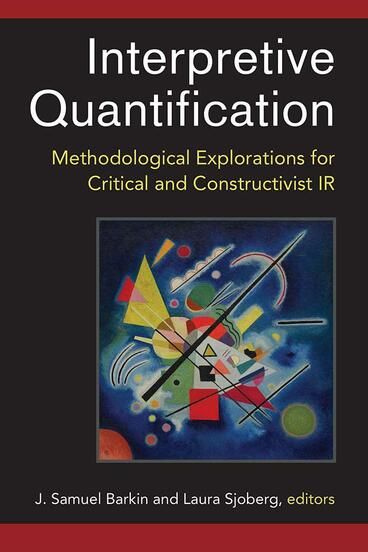Interpretive Quantification
Methodological Explorations for Critical and Constructivist IR
Revolutionary volume demonstrates how crossing the positivist and post-positivist divide improves political science research
Description
Countering the growing divide between positivists who embrace quantitative, numerical approaches and post-positivist scholars who favor qualitative, interpretive approaches, J. Samuel Barkin and Laura Sjoberg argue that both methods are more widely adaptable than is commonly assumed by either camp.
In Interpretive Quantification, ten highly regarded scholars in the field of International Relations apply quantitative methods and formal models to specific constructivist and critical research questions. In this way, each chapter serves not only as evidence that methods can productively be applied across paradigms, but also as a guide as to how this may be done. In sum, the contributors make a compelling case that when researchers cordon off particular methods for merely ideological reasons, they circumscribe their own paradigms and hinder their own research agenda.
J. Samuel Barkin is Professor of Global Governance and Human Security at the McCormack Graduate School of Policy and Global Studies at the University of Massachusetts Boston.
Laura Sjoberg is Associate Professor of Political Science at the University of Florida.
Reviews
“Interpretive Quantification offers a timely, much-needed transgression of a major theoretical-methodological boundary limiting the possibilities of IR: with high-quality contributions organized in a systematic way, it demonstrates how quantitative methods can and should enrich constructivist and critical approaches, thereby opening up fascinating new research avenues.”
—Stephane Baele, University of Exeter
“...deserves a place on the short list of books and articles that change, not what we know about the world, but how we think about it. Very highly recommended for graduate students and faculty alike.”
—Bear Braumoeller, The Ohio State University
“This truly path-breaking volume opens up productive lines of scholarship that have been sorely neglected.”
—Andrew Bennett, Georgetown University

